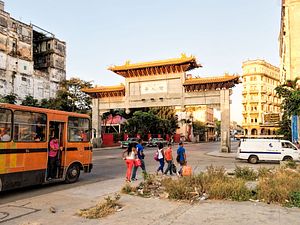Chinese Prime Minister Li Keqiang visited Cuba over the weekend with the aim of deepening the two countries’ already considerable relationship. Li met with Cuban President Raul Castro, signing some 20 agreements, and also visited with Fidel Castro.
The Chinese premier’s trip comes days after Japanese Prime Minister Shinzo Abe became the first Japanese president to step on the island–a direct product of the late-2014 thaw in relations between the United States and Cuba.
Li may be the first Chinese premier to visit Cuba, but he is far from the first high level Chinese figure to set foot in the Caribbean communist state since they established relations 56 years ago. Cuba, in 1960, was the first country in the Western hemisphere to switch its recognition of China to the communist regime.
Fidel Castro, the story goes, proclaimed at a rally in Havana (the exact date varies between accounts), that “The Revolutionary Government of Cuba would like to ask the Cuban people if you would like Cuba to establish diplomatic relations with the People’s Republic of China.” The crowd roared, chanting “Yes, yes!”
Castro then reportedly approached the chief of the New China News Agency and said, “Here is the Chinese representative. From now on, I declare that Cuba has cut its relations with the puppet regime of Chiang Kai-shek.” Since that time the two countries have had decent relations, underscored by routine high-level visits and increasing trade.
In 2014, Chinese President Xi Jinping stopped in Cuba during a South American tour on his way to the BRICS summit in Brazil. In 2011, as vice president, Xi visited Cuba for three days. Xi’s predecessor, President Hu Jintao, visited Cuba twice in 2004 and 2008.
All the while, China-Cuba trade and business has increased. At present, China is Cuba’s second-largest trading partner, coming in after nearby Venezuela. According to official Cuban data cited by Reuters, China and Cuba traded “$1.6 billion in the first nine months of 2015, a 57 percent increase on the same period the previous year.”
A Cuban expert lauded the relationship in an interview with Xinhua. Ruben Zardoya, former rector of the University of Havana, said relations were in a “crescendo.” Chinese investment in Cuba, Zardoya said, is “tangible” and diverse: “promot[ing] investment, banking development, transport, industry, defence, civil aviation, renewable energy, agriculture and biotechnology, among other areas.”
“We must learn from their best practices. Chinese experience has been extraordinary and is an indisputable source of inspiration for Cuba,” said Zardoya.
China’s experience “has helped Cuba in updating its socialist model,” another Cuban expert interviewed by Xinhua said.
Some see the successive visits of the Japanese and Chinese prime ministers to the island as evidence of a Caribbean contest between them. The back-to-back visits, however, were more a product of timing–both Abe and Li flew to Havana after attending the 71st session of the UN General Assembly.
As Mina Pollmann wrote ahead of Abe’s visit, Tokyo hopes to capitalize on the opening of Cuba and there is greater potential for U.S. allies to invest in the island now. Nevertheless, it’s not really a fair fight between Tokyo and Beijing for Havana’s attention.
Above all, Cuba looks likely to benefit from the surge in interest: in areas where both Japanese and Chinese companies excel–in energy or rail, for example–competition between the two Asian giants could produce greater results.
































